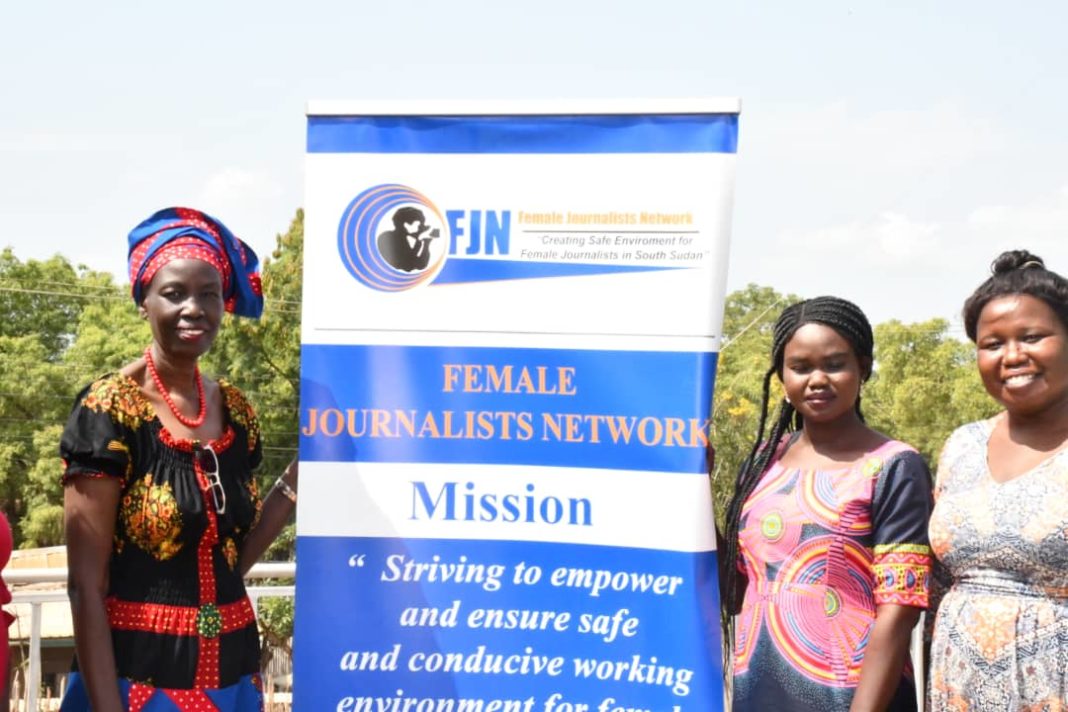When people say, women are envious of themselves, as women we rush and say, No, no, no, that is not true. But sometimes we are. Sometimes, we envy ourselves. Sometimes we discourage ourselves. Sometimes, we think, why should my sister get everything? And that is not good.
Ex -BBC sub-Editor and Sudan Radio Service Executive Producer, Member of Parliament, Major General Rebecca Joshua Okwaci, who has held several ministerial positions, and was known as the Voice of the Revolution during the 1983-2005 Sudanese war, opens up:-
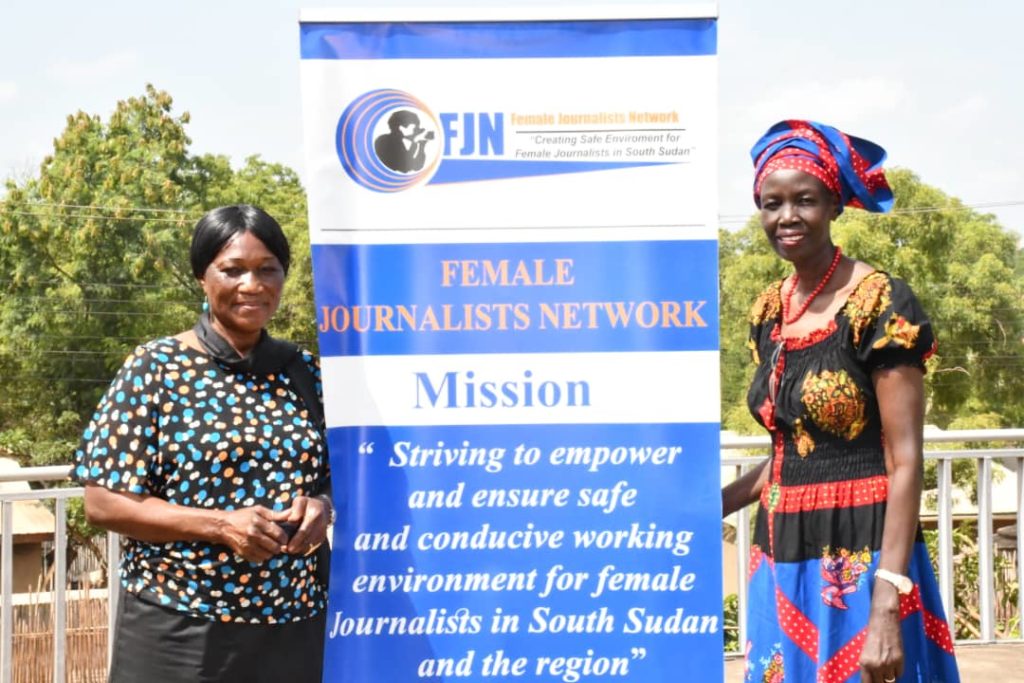
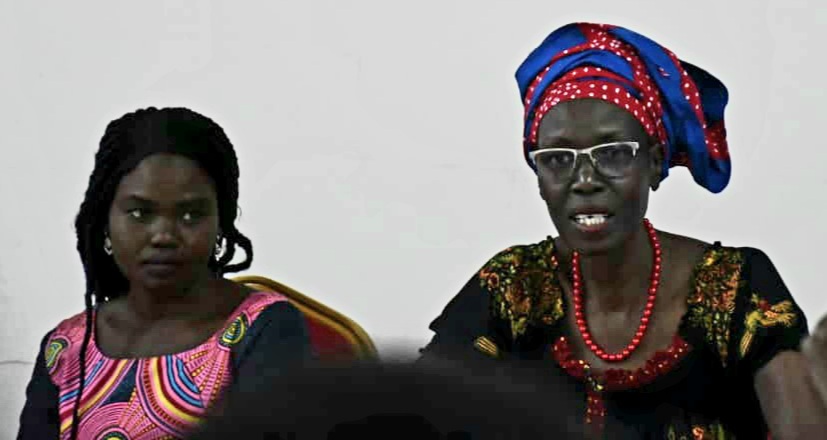

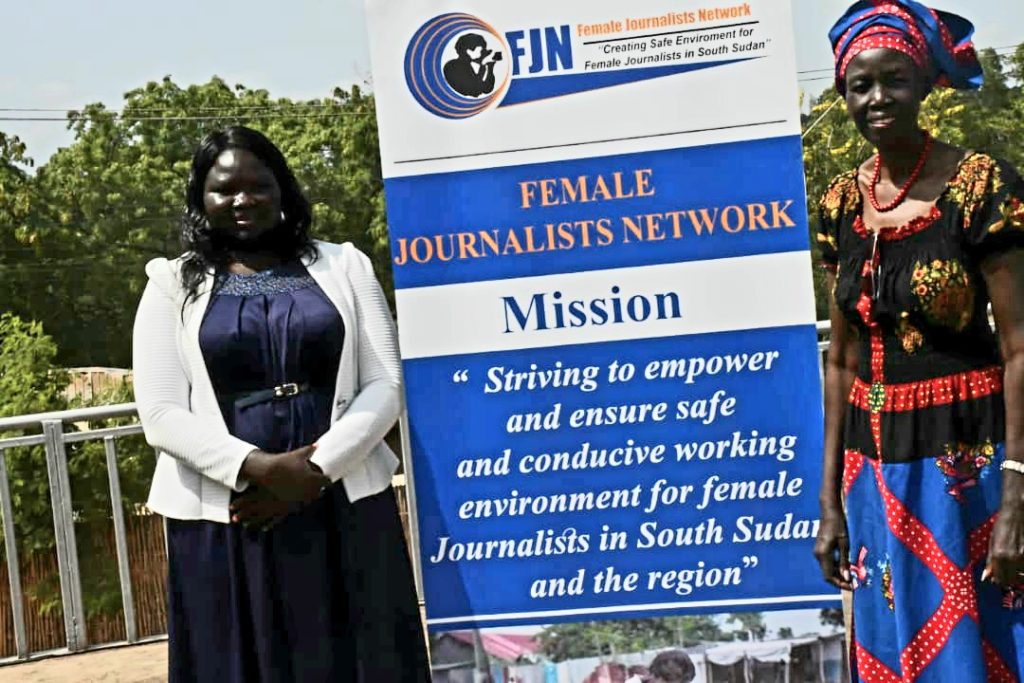
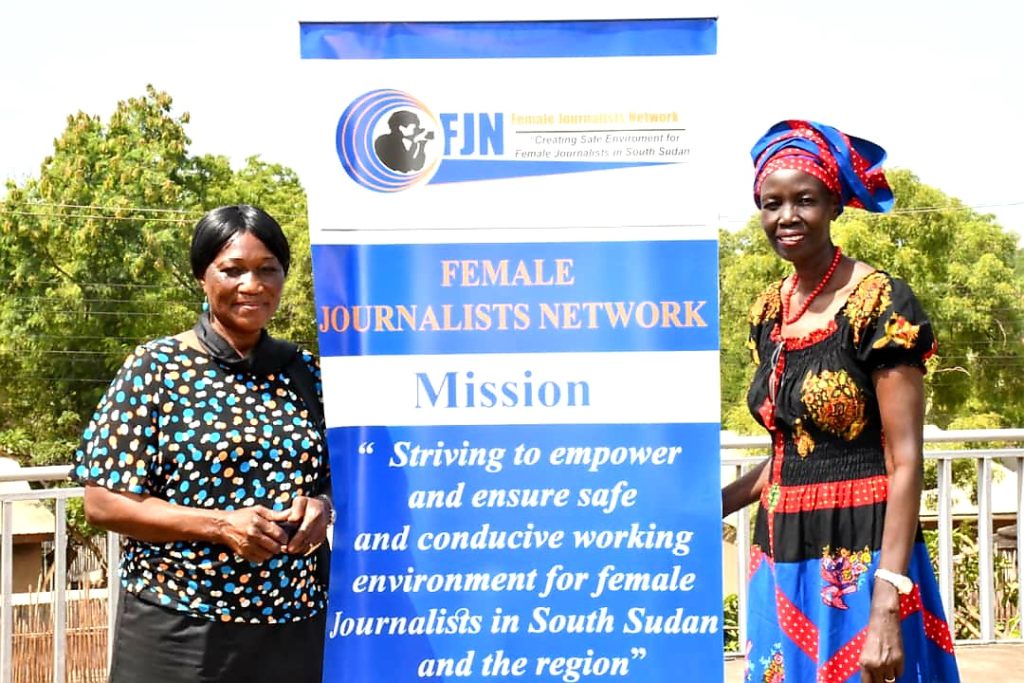
BY ROSE KEJI BENJAMIN
Reporting for these series is funded by the Norwegian People’s Aid (NPAID) through the Female Journalists Network (FJN) as part of a project to bring women’s voices to the fore. Badru Mulumba edits the series
Rebecca Joshua Okwaci did not merely take her father’s word to heart – she stepped in his footsteps. Whenever Okwaci’s father returned from Parliament, he would heap praise on a female colleague – the first woman to graduate from University in Sudan, Victoria Yar. “Oh, my Victoria! A colleague of ours, a lady from the Dinka tribe – she went to university; she is very intelligent; she is in Parliament. And you know when she speaks, she shakes the house. She doesn’t shy away. She is very intelligent.” An agriculturalist and accountant, who studied at the American Commercial school, her father was a cabinet minister and Member of Parliament.
“My dad would tell us, ‘I want you to be like Victoria [Yar], work hard like Victoria,” Rebecca recalls. “We got that inspiration and role-modeling through my father. We said, ‘Ok. We also want to be like Victoria.”
MS. FIX IT
And so was laid the foundation of her work in politics. “I am not in politics for what people think – money, position. No. I always believe that there i can influence positions for the good of the people. I think that is the mission we have for life.” The woman who started as a labor inspector – a mid level civil service post, would climb to the top, first as the topmost civil servant – a Permanent Secretary, before walking into political leadership as deputy minister and then as minister, assigned to fix critical sectors before and after Sudan’s split. In many ways, she has equalled, if not surpassed, the dreams of her father. “I Started as undersecretary. I went round and climbed up the ladder. it gave me a lot of advantages. Even in the liberation (war), I worked as assistant inspector for labour. So I know what it means to be a civil servant,” she says. Wherever she went, she left a trail of achievements. At public service, she started a mentoring project that imported senior civil servants from Kenya, Uganda, and Ethiopia. “(It) helped us to move forward because we were a new country,” she says. She etablished a pension department in 2009, and absorbed South Sudanese returning from North Sudan into the south’s civil service. When she became deputy minister of Education, working with seasoned educator, Professor Joseph Ukel, she established a women vocational training center.
Her rise to full cabinet minister was dramatic event. “I was first appointed deputy minister of information. Then, the president changed it within a week. So i was appointed minister of Telecommunications & Postal Services.”
At telecoms, where she completed the Telecommunications House, which had grown into a white elephant, established the National Telecommunications Authority and connected South Sudan to the One Network Area (ONA), she had joined when she was green about most things IT. “When I was in the ministry of ministry of Labor, I had background in public service. In Education, II had volunteered at the university. When I went to telecom, it was something new. We all know mobiles, but there are things we need to understand.
“I remember someone saying, ‘Why take Rebecca to telecom and she is not an engineer?’ I tell you, I learnt from the environment. I told my staff, when i call you to the office, don’t panic. By the time, i had spent two years, I remember i went to Nigeria – People were calling me engineer Rebecca. I told them, I am not an engineer; I even come from an arts background. They said, ‘Oh, come on madam, the way you talk about these things’.
“I learnt to the extent that when I was doing my masters, my supervisor, changed my topic from what I planned and i did something in ICTs, based on the knowledge I had acquired from my staff, reading, traveling. But you have to also tell yourself, ‘I have to learn. If you don’t tell yourself, you will not. Everyting i ask God, he gives me. If he doesn’t give, I know it is not time.”
As minister of Roads & Bridges, she worked on a deal that set aside oil to fund road construction to increase, more than ten fold, the just over 200km of tarmac.
“There’s nobody who will come and just give you money for roads. When we traveled to china with His Execellency, the President, we had already tried to get a loan from China and it was difficult, because we also had a part to pay. But we managed to go for a policy- I got together a policy -to allocate 10,000 barrels of oil a day from the money from the oil and put it aside for roads.”
That deal enabled the ministry work on contracts for roads – Juba to Torit, Juba-Bor, Kaya road alongside with the Ugandan government, and the Road to Bahr el Ghazal. “I did a lot of homework in terms of techncal work, contracts,” she says. “I am happy that the one who followed me has gone ahead (with the policy).” By the time she left the ministry, the Freedom Bridge, the country’s longest bridge across the Nile, funded by Japan, had reached 82 percent completion. She also linked up with Kenya’s Fred Matiangi to agree to lay 600km of optic fibre. While a long trail of achievements may make it seem easy, but she was dealing with new institutions with limited funds and techincal capacity. The ability to innovate served her well. “Sometimes, you find people who are misplaced. find people in positions and are not up to task,” she says.
“When we face challenges, I say, there must be a solution somewhere. In one of the ministries, we had no power. the generator was very old and i was tired of fixing it. What I did was look outside the box, talk with my neighboring ministry, and i told them, ‘We are going to tap power from you’, because they had big generators, and they had surplus of power. We simply bought a few cables and the ministry was lit 24 hours and my staff were very happy.”
The call to serve was strengthened by her upbringing. “Mother was very religious. she mentored the church women a lot. I grew up knowing that it is good to be good people – serve people. My parents also used to tell us that there was no difference between girs and boys. I wouldn’t name any obstacles as a female, no. I grew up with the mindset that there is no difference between me and a boy. And, therefore, I do my work deligently. And I don’t want to go back and say, I wish I had done this. I never felt that I was a female in a field of men. For me they were the same. when I was in sports with them, in same team, people like James Hoth Mai (former Chief of Staff), we were the same.” That attiude was thanks to her father. One day, the milkman was away and the cows were mowing with pain as the milk acumulated. “My father said, What’s happeing? And we said, ‘There was nobody to milk’.” He looked at them puzzled. “You can’t think outside the box?”
“I took a small silver container and I said I was going to try (to milk the cows). And my siblings were laughing at me: You, everything you want to try.”
The first and second days, she didn’t draq milk. On day 3 someone showed her what to do with the cows’ breasts. She drew some milk
“In my tradition, girls are not allowed to milk. But my father said, ‘These are just traditions, you go my daughter’. So this kind of mindset tells you that there’s no difference.
To her, everything needs determination. “If you can not do it all, you can do something,” she says. “Every time i have moved from one point to the other, I always remember that my father said this, my mother said this.”
SPOUSAL SUPPORT
Inspite of the inspirations and role models, the rise to the top was painstakingly slow, as she juggled work and family. Just over a month after she got married to opposition doyen, Dr Lam Akol, the young couple joined the civil war. Before she knew it, she was babysitting from her work desk. It helped to have a supportive husband. “During the liberation, my husband never felt that this wife, woman, (should) sit in the corner. We joined the liberation war as a young couple. We had just finished our marriage and in a month or two we joined the liberation. I actually joined the liberation with the Hinna in my hands,” she says. “When I was in SPLA, everytime I read the news, he would send me a message: ‘That was exellent, that was good.’ So I really continued to be a star in Radio SPLA. I was a lone female voice in SPLA – in English, arabic, mother tongue.”
She juggled that with motherhood. “Nyagak (her daughter) was still a baby. I would bring a soft blanket, put it on the table and continue to chair the meeting. I remember she was called a peace baby because of no crying, no noise.” In 1995, Rebecca traveled to Beijing for, perhaps, the most consequential women’s conference. Not allowed to carry a newly born baby, she sought the doctor’s advice. Advised the doctor: “Leave the baby behind – there are people who can take care of her. When you reach, squeeze the milk so that when you return, the milk doesn’t stop flowing.” Rebecca did exactly that. When she returned, she could still breastfeed. At a World Council of Churches conference, in Austria, she took her 6 months baby.
“You can imagine in a foreign land, in Europe, how you juggle with the baby. You had to take the tramp in the morning,” she recalls. “I was always the first person to arrive in the morning, and i was able to present my paper on behalf of the women.”
FIGHTING DIRTY DISHES
Something else shaped early was attitude to house chores.”If you were to ask me – in this house now I have no helper. I manage to take care of my house,” she says. “At home, I like cooking and I like cleaning, although now my energy is running out. You find calabashes, artifcats. I like keeping artificats and pictures. I like visiting people.”
Rebecca Johsua’s love for household chores was shaped by an imaginery childhood war-room. She would fight, fight, and fight. And then she would fight some more. Except, she wasn’t fighting with other children; she was fighting with household chores: the dirty dishes, the dirty floor, and everything in between.
“My mother would tell us, ‘It is not the dishes that are going to kill you; it is you who is going to kill the dishes. Go take your sandwich, juice, then go and fight with the dishes’. Then you get encouraged, you start singing in the kitchen. When everything was clean, she would say, ‘I have just killed the dishes’. “So, this childhood mentality, setting for human beings – you can do it; you can try it.
MULTI-TALENTED
Despite doing all these, she finds time to pursue other interests. Weekends, she visits the sick, family, and friends and she is also a member of the Korbandy Saloon – a poetry group started by the former head of the South Sudan Human Rights Commission. “I am a poet. I like poetry. I sing. I am a sports woman from early childhood.” She puts that to being organized. She keeps a dairy and refers to it by the hour. “I learned to say, No, for things that I can’t,” she says. “There are things that happen at the same time; I tell people, ‘I am sorry, but this work I can’t do. That’s why I like people who inform you ahead of time that they wouldn’t make it.”It is possible, but it is not that easy. but out of experience, i believe i have managed,” she says. “I learned that from early childhood. i had a father who was also very multiple in his skills and his gifts. i learnt from early age that i could do a lot of things.” And she did a lot of things. She traveled often as a student sports girl and to Ethiopia to professionally record music. “I used to have a good voice, but i think radio work had taken from me a lot. I sing to myself and to small gatherings, especially women gatherings.
I started singing from an early age, also as part of the choir, professionally recorded. I used to be taken to Ethiopia. I was very friendly with the microphone since i was very young. it gives me a lot of consolation. I remember one time a doctor told me that i liked to sing and my child was going to become a musician.
He didn’t become a musician. He became a sportsman.” One other thing that she picked up from her father was gardening. “He always had vegetables, even if for me I was a flower lady. While my father was in okra and what else, me I was in flowers.” The parents nurtured them to decide for themselves. When she came to Juba she told her father that she didn’t like her school. “They brought me to juba girls. But then I realised that – that adolescent time – my friends were not there. I told my dad I didn’t like the school. He said, ‘spend a year, I will get another (after)’, which he did. You know this kind of promises, and really having the kids remain in school. You don’t force them just because you think it is right.” Her extracurriculars have never interfered with her love for education, earning a bachelor’s degree in English language, Literature, and Translation from Egypt’s Alexandria University, and, decades later, a master’s degree in Communication Development from Kenya’s Daystar University. “Education helps. it is not that people who have not gone to school are not intelligent. but education adds to what you have – when you have skills before going to school and you have been exposed to seeing things, and you have learned that every thing is possible,” she says. There are skills in us. We are born with talents. As we move through life, we acquire skills, but sometimes we don’t use them.
Sometimes, people are lamenting: ‘I can not. You people are lucky. God has given you this and he has not given us anything’. But God has not given us anything.
“I have come to learn that even – that is why I read history – some of these philosophers were musicians, physicians, they were everyting. As a minister, how do you get to write poems? These are talents and you just have to nurture them.” For that mentality of constantly applying herself, irrespective of gender that has shaped her work, she can always mostly look back to two women – Victoria and her mother – and a man, her father. “That was victoria – a lady I didn’t even meet – the first female graduate from the university of khartoum. How did she become a role model? it was from my late father,” Rebecca says. “Every time i have moved from one point to the other, I always remember that my father said this, my mother said this,” she adds.
“I have never become rich – rich in money because I don’t have the money, but I am rich in spirit. I am rich in skills. I try things. If I manage, I am happy. If I don’t, I (learn)”
PARTING SHOT TO WOMEN
“Humble yourself. First thing is to be humble. You know when you are arrogant and your nose is up, you always faulter and fall. Humble yourself.
“Don’t wait for affirmtive action. Acquire skills and knowledge. (Because) we don’t want to enrich our knowledge, we go and talk and they think we are foolish. We shouldn’t take home chores, family responsibilities as a reason. We need to take care of our families but also when we divide our time properly, we can manage. I want to encourage our women to cultivate love and harmony among themselves.
When people say, women are envious of themselves, as women we rush and say, No, no, no, that is not true. But sometimes we are. Sometimes, we envy ourselves. Sometimes we discourage ourselves. Sometimes, we think, why should my sister get everything? And that is not good.
We should create that environment that when you are up you extend your hand and help.
The final thing: Our men are not our enemies. Although my parents were the ones behind me – I remember how when my university results came out my father shouted in the yard, Oh, my girl – my husband did the same. We were buddies. We worked together. Sometimes, we were separated – someone is at the frontline and the other is on the other side. My brothers, my brother today is an engineer, but he is the one who drives me around when I am stranded. He’s a big person, but he wouldn’t want to hear that I can not move because I have no transport. I was sick recently and he gave me money to go for treatment, because I am not working.
So, men are not our enemies. We are not against men, we are not fighting them, they can stand by us, they can protect us during gender-based violence. They can work towards justice and emancipation and freedom and development of women. Let’s bring men to be our friends.
Learn to give yourself time to learn, time to rest, time to enjoy. When you do that you balance so that you don’t get down. There’s time to work, time to eat, time to rest. And remember to pray.
BRIEF BIO
- 2019: Military medals: Order of Sacrifice 2nd Class; Medal of Resistance; Medal of Long Distinguished Military Service; and Medal of independence.
- Winner of a Lifetime of Service Award.
- Founding member/Secretary General: Sudanese Women’s Association in Nairobi (SWAN)
- 2004: Founder and Secretary General, Women Action for Development (WAD)
- Member, South Sudan National Olympic Committee
- Peace award (on behalf of Sudanese Women Empowerment Network) from the American Peace Foundation, DC. Invited to speak at the US Congress
SEP 23, 2021 UPDATE: After this story was published, women leaders, including Joy Kwaje, called Rebecca a true hero and lobbied for her return to leadership. President Kiir appointed her the Chief Whip in the South Sudan Parliament, making her the first female to hold the position and adding yet another female voice to the top leadership in the country
co-authored with Badru Mulumba


